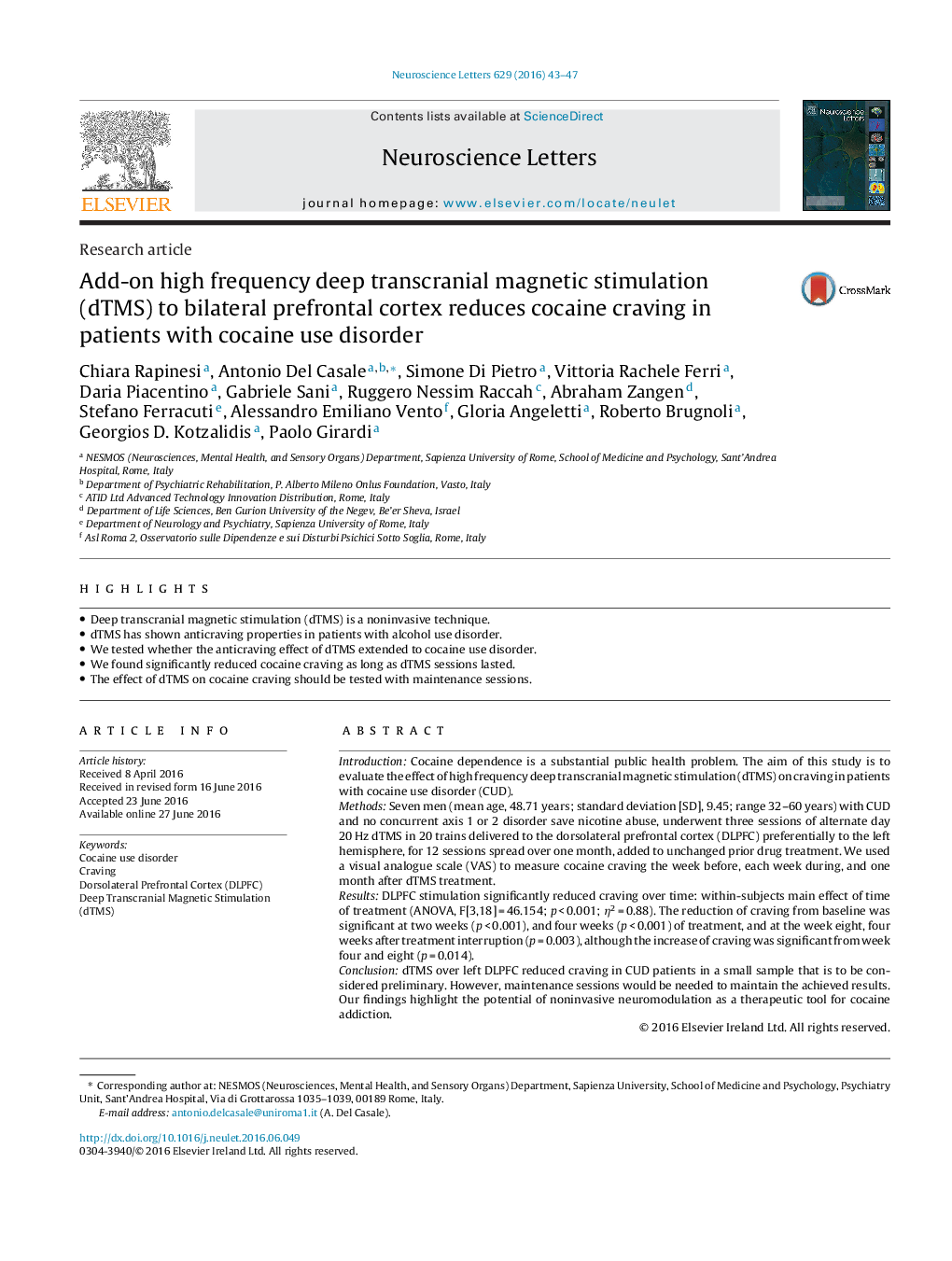| Article ID | Journal | Published Year | Pages | File Type |
|---|---|---|---|---|
| 4343209 | Neuroscience Letters | 2016 | 5 Pages |
•Deep transcranial magnetic stimulation (dTMS) is a noninvasive technique.•dTMS has shown anticraving properties in patients with alcohol use disorder.•We tested whether the anticraving effect of dTMS extended to cocaine use disorder.•We found significantly reduced cocaine craving as long as dTMS sessions lasted.•The effect of dTMS on cocaine craving should be tested with maintenance sessions.
IntroductionCocaine dependence is a substantial public health problem. The aim of this study is to evaluate the effect of high frequency deep transcranial magnetic stimulation (dTMS) on craving in patients with cocaine use disorder (CUD).MethodsSeven men (mean age, 48.71 years; standard deviation [SD], 9.45; range 32–60 years) with CUD and no concurrent axis 1 or 2 disorder save nicotine abuse, underwent three sessions of alternate day 20 Hz dTMS in 20 trains delivered to the dorsolateral prefrontal cortex (DLPFC) preferentially to the left hemisphere, for 12 sessions spread over one month, added to unchanged prior drug treatment. We used a visual analogue scale (VAS) to measure cocaine craving the week before, each week during, and one month after dTMS treatment.ResultsDLPFC stimulation significantly reduced craving over time: within-subjects main effect of time of treatment (ANOVA, F[3,18] = 46.154; p < 0.001; η2 = 0.88). The reduction of craving from baseline was significant at two weeks (p < 0.001), and four weeks (p < 0.001) of treatment, and at the week eight, four weeks after treatment interruption (p = 0.003), although the increase of craving was significant from week four and eight (p = 0.014).ConclusiondTMS over left DLPFC reduced craving in CUD patients in a small sample that is to be considered preliminary. However, maintenance sessions would be needed to maintain the achieved results. Our findings highlight the potential of noninvasive neuromodulation as a therapeutic tool for cocaine addiction.
